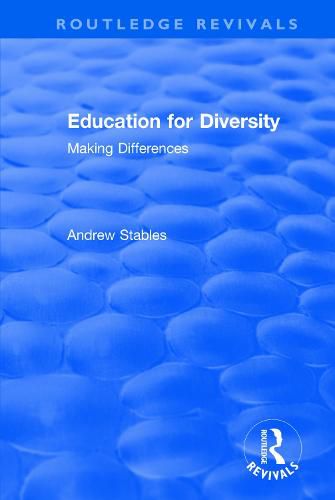Readings Newsletter
Become a Readings Member to make your shopping experience even easier.
Sign in or sign up for free!
You’re not far away from qualifying for FREE standard shipping within Australia
You’ve qualified for FREE standard shipping within Australia
The cart is loading…






This book was published in 2003.Certain social and cultural changes have problematized many of the assumptions that underpinned educational thinking in the 20th century. These can be grouped under three broad headings: individualization, globalization and the ecological challenge. Each of these has potentially profound implications for education that have been little explored. Rising to the challenge, this volume examines individualization in relation to changing attitudes to childhood and the positioning and identity development of students within educational markets . It discusses globalization from several crucial perspectives, including the reduced sovereignty of the nation state and the problematizing of notions of distance and proximity. The ever-increasing environmental crisis is considered in terms of the possibilities for education for sustainable development. The author adopts a pragmatic approach, exploring the supremacy of individual and collective readings of the world and divulging his views on whether education is capable of determining the future in predefined ways.
$9.00 standard shipping within Australia
FREE standard shipping within Australia for orders over $100.00
Express & International shipping calculated at checkout
This book was published in 2003.Certain social and cultural changes have problematized many of the assumptions that underpinned educational thinking in the 20th century. These can be grouped under three broad headings: individualization, globalization and the ecological challenge. Each of these has potentially profound implications for education that have been little explored. Rising to the challenge, this volume examines individualization in relation to changing attitudes to childhood and the positioning and identity development of students within educational markets . It discusses globalization from several crucial perspectives, including the reduced sovereignty of the nation state and the problematizing of notions of distance and proximity. The ever-increasing environmental crisis is considered in terms of the possibilities for education for sustainable development. The author adopts a pragmatic approach, exploring the supremacy of individual and collective readings of the world and divulging his views on whether education is capable of determining the future in predefined ways.